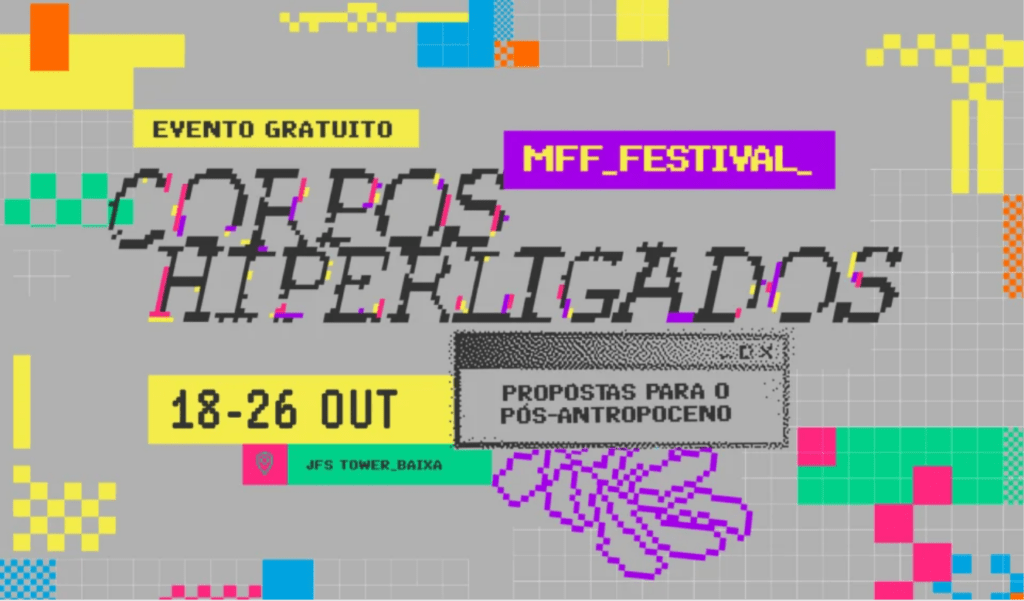Maputo will be the capital of thought, creativity and innovation from this Friday 18th until the 26th of October. The official programme for the Maputo Fast Forward Festival (MFF) 2024 is now public and it is clear that it brings together a variety of high-level players to delve into a theme that is unusual in everyday language, but where people’s actions gravitate and which is important for understanding these times. ‘Hyperconnected Bodies: Proposals for the Post-Anthropocene’ is the central theme and we sought to understand its nuances with curators Tassiana Tomé, anthropologist and researcher, and João Roxo, designer and visual artist.
With a programme that includes an international conference, multidisciplinary shows, exhibitions, Learning circles and a bazaar of innovative initiatives, this year the MFF proposes to look at and discuss issues related to the ecological and climate crisis, extending the debate to the intersections with other major global crises, such as democracies and the increase in armed conflicts, facts that are later reflected in our human and individual relationships (with our own bodies).
‘We want to bring these discussions together by looking at alternative futures. That’s why we talk about proposals for the post-Anthropocene,’ says Tassiana Tomé. The Anthropocene is this geological epoch in which there is irreversible damage caused by the excessive consumption of natural resources, a reflection of human activities in the environment. Thus, the post-Anthropocene proposal is to think about the different ways of life that can be considered and built in order to achieve a healthier model of regeneration and connection with the earth, so that it remains a habitable space for all living beings.
João Roxo explains that ‘we establish a link between different scales of our life, the planetary, social, human and temporal, so it is within this framework that we bring proposals for a better future through art, technology and innovation’, which act as catalysts for social change.
One of the important moments for reflection will be the International Conference, during the festival, where participants will explore different aspects of the theme, considering the earth as a living organism, in different dimensions of ‘bodies’: the Planet Body, the Social Body, the Human Body and the Temporal Body. There will be panels made up of speakers dedicated to these themes, including issues linked to pan-Africanism, activism and feminism. The moderation will be the responsibility of Mozambicans, as a way of redirecting the issues raised to the Mozambican context. On the other hand, the audience will be in dialogue with subjects that, although little explored domestically, are in vogue in other African countries and around the world. This is, in fact, the essence of the MFF: connecting the world to Mozambique and connecting Mozambique to the world.
Feminist and decolonial perspectives
A strong presence of women among the conference’s panellists would be a sign in itself, but more than that, there is a whole curatorial structure designed to ensure that the debate takes on various points of view, capable of aggregating and pointing to the future with balance. According to anthropologist Tassiana Tomé, ‘we wanted there to be a significant representation of women. We have five Mozambican moderators, four of whom are women,’ and she also explains that feminist and decolonial perspectives will be brought to the table, bringing a vision that transcends the Eurocentric paradigm of thinking about ecological, social and political issues.
The opening panel of the conference, which will take place on Friday at 4pm, will include Patricia McFadden, a radical African feminist, sociologist, writer, educator and editor of Eswatini, alongside Achille Mbembe, professor of political history and Rolando Vázquez, professor of Post-Decolonial Theories and Literatures, with a focus on the Global South, moderated by Mozambican sociologist and feminist Isabel Casimiro.
MFF has a proposal that may seem complex to some, as it incorporates new concepts that are less common in Mozambican daily life. As such, the MFF’s main intention is to transpose ideas from academic spaces or specific niches to a wider audience, so that previously restricted themes can reach new circuits.
‘We want to instil more curiosity and provoke the public to thirst for more and to seek out more knowledge about the topics covered. We’ve tried to do things in such a way that it doesn’t become academic, but brings together different perspectives. We have artists, activists, people with experience in NGOs, academia or research, but the idea is that different perspectives can enter into dialogue,’ says Tassiana Tomé.
Connecting people and causes
The organisation of MFF-2024 will be concentrated in the same space, without altering its multiplicity. This ‘innovation’ was also taken into account in the curatorial process, when thinking of ways to guarantee a presence of the creative community, with a view to establishing greater engagement and a critical mass of people interested in debating relevant and profound issues.
The Learning Circles are planned for young university students, artists and activists. This is one of the novelties of the 2024 edition of the Festival and could function as an extension of the international conference. The aim is to provide more intimate moments in circles of learning about conservation, economics and deep ecology, ecofeminism and decolonial art. Participation in these moments is limited, subject to prior registration.
‘To allow people or causes that are connected to create synergies from there,’ says Tassiana Tomé, emphasising that, with the knowledge circles, this time they want to ensure that there is a moment to create collaborations, without forgetting the exchange of information.
This edition of MFF is proof that it is indeed possible to do a lot with little, but it also demonstrates the urgency of changing the conditions of art and culture so that they don’t remain precarious.
Linking technology and art
Seven hyper-multidisciplinary exhibitions bringing together national and international artists will also be presented, some on the 19th and others on the 21st of October, and will be on show until the 26th of this month (the last day of the Festival) at the JFS Tower.
They are individual works, but somewhat related to each other.
‘We’ve invited each of the artists to present something that has some connection with the theme of this edition,’ says João Roxo, adding that ’that’s where this curatorial exercise comes in, of trying to establish links between all the contents, both of the exhibitions, panels and conferences, as well as the knowledge circles, because in this way we have the opportunity to bring thinkers and artists from different practices to not only exhibit their work, but also to engage with each other.’
The Festival Maputo Fast Forward 2024 thus promises to be a space for the confluence of ideas that connect Mozambique to the world and vice versa. It’s an opportunity to transform Maputo into a place where people meet the world and foster discussions aimed at reimagining the future from inclusive African perspectives.



